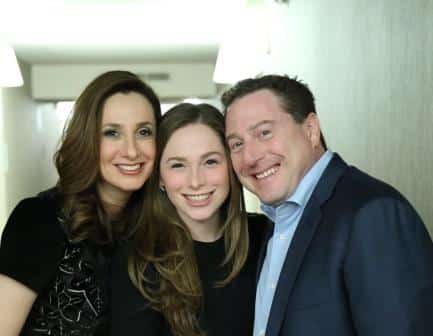Not The Average Mom, But A Survivor

My regular doctor’s checkup at my pediatrician had never been easy for the three of us. My mom held my hand as I, a 19-year-old girl, kicked and screamed as the doctor, whilst holding me down, pricked me with a needle. Once she’d finish, we all calmed down—relief spread across the doctors face, I sat upright, proud to have endured the pain of a PPD shot, and my mom said, “See, that wasn’t so bad?”
So when it came time for my yearly check-up last summer and my mom broke the news that I’d be visiting a new doctor, I was sort of excited. And then she told me where I was going—to the gynecologist—and I cringed. I was a 20 year old girl with a family history of breast cancer, she said, there was no harm in being extra cautious. But my mom didn’t realize that was the last place I wanted to be.
As I sat in my new doctor’s office, that resembled more a family living room than the white, sterilized offices I was accustomed to, I was a little excited to have graduated the awkwardness of going to a pediatrician as a full-grown young adult. I registered my name with the secretary and hesitantly took the clipboard with piles of paperwork I was expected to complete. Out of habit, I motioned to my mom to take the clipboard and fill out the papers. “I think you can handle it,” she said to me. So I sat down and flipped through the pages, filling out my name, date of birth and current address. Then I turned to the page where it read at the top, “Family History” and underneath it a check box for “Cancer” with a space left blank to specify “Type.”
In that moment, my body froze. I was suddenly transported back to the fifth grade. Visions popped into my mind of my mom’s bald head, her skinny face tucked under layers upon layers of blankets and the palpable devastation my family felt throughout the early months of her diagnosis. Though my mom is in remission today, thank god, and it has been ten years since her diagnosis, the moment I put a check in the box marked “cancer” I felt like I was branding myself with the word and everything it carried—as someone who had to be watched, someone who had to be “extra cautious.” In that moment, I felt weak, like I had no control over my body or of my future. In that moment, I didn’t want to have to worry about the outcome of my appointment. I felt bad for myself. Most of all, I felt bad for my mom.
I looked at her sitting next to me, with her long black hair framing her full and lively face. When my mom was sick, I was in fifth grade. As her oldest daughter, I felt a responsibility to take care of my mom. Though I couldn’t exactly heal her, after all I wasn’t a doctor, I decided to put my time into the little things—waking my siblings up for school (though they complained I was too rough), making up dances with my sister (though she said I was too controlling) and constantly reassuring my brother that everything was going to be okay (though he doesn’t like to admit it). Though my mom is well today I still feel a responsibility to watch over and care for her—to make sure that she is happy, healthy and, most importantly, taking care of herself. I must remind myself all the time that my mom is not the “average” mom, but she is a “survivor,” with the battle scars to show off her fight.
When I think of what my mom had to go through at the young age of 34, I get the goosebumps. The fact that I was too young to even understand the pain that my mom endured makes my head pound. The only sense of condolence I receive is that other women can seek my mom’s advice, support and companionship as they battle breast cancer. And to take this a step further, it is through organizations like Sharsheret that specifically link those battling breast cancer to women like my mom, helping others find a guidance within the Sharsheret community.
As I heard the doctor call my name to enter the exam room—a place that I was sure I’d visit again for years to come—I looked at my mom. “Ready?” She said. And then it hit me.
My mom was not only a role model for women battling breast cancer, but also for others like me—children of those who are diagnosed. She had indirectly been showing me all along that it was not embarrassing to take precaution and the only way to take care of myself and to be healthy was to ask my doctor questions and to attend my annual appointments. It had taken until my first gynecologist appointment to realize that my mom, and others like her, can strengthen and support both women and teenagers alike to take care of themselves.
“Ready,” I said as I stood up from my chair and took her hand, and together, as “survivor” and daughter, we entered the exam room.
